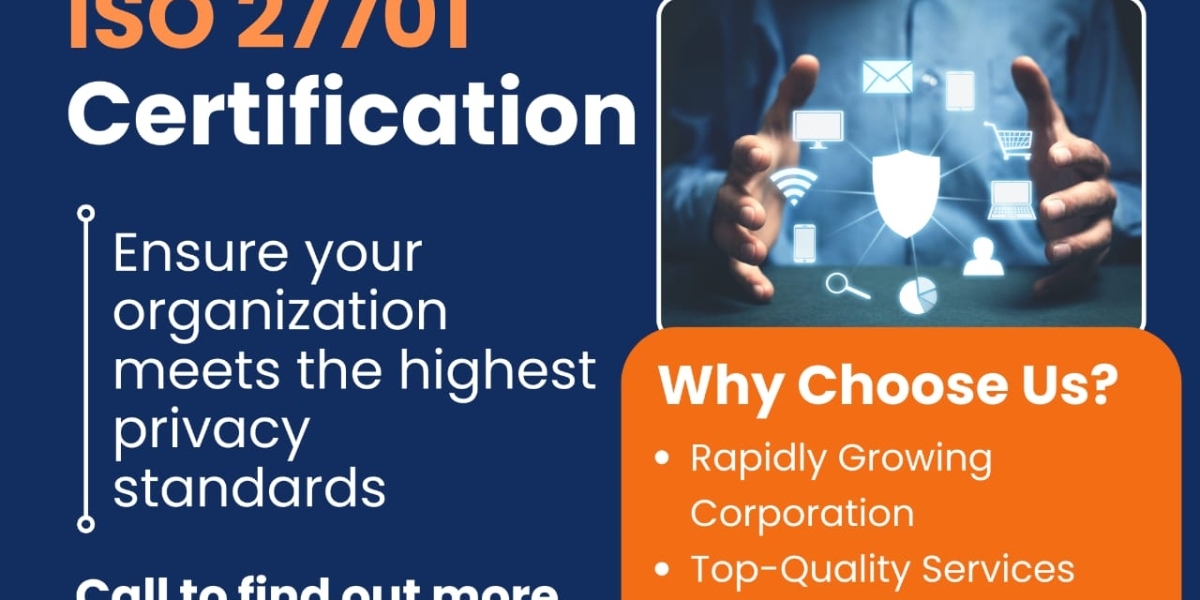In today’s data-driven world, protecting personal information is crucial for maintaining customer trust and regulatory compliance. ISO 27701, the international standard for privacy information management, extends ISO 27001 by adding specific requirements for managing Personally Identifiable Information (PII). For organizations seeking ISO 27701 Certification in Dubai, understanding what documentation and evidence are required during an audit is essential to achieving compliance and demonstrating accountability.
This blog explores the key documentation and types of evidence that auditors typically expect to see during an ISO 27701 audit and how ISO 27701 Consultants in Dubai can help your organization prepare effectively.
1. Understanding ISO 27701 and Its Audit Process
ISO 27701 focuses on establishing, implementing, maintaining, and continually improving a Privacy Information Management System (PIMS). It is designed to align with global privacy laws, including the EU’s GDPR and the UAE’s data protection regulations.
The ISO 27701 audit process involves reviewing an organization’s privacy management practices, evaluating how PII is protected, and ensuring that both data controllers and processors meet privacy requirements. To demonstrate compliance, organizations must provide adequate documentation and verifiable evidence that their PIMS operates effectively.
2. Core Documentation Required for an ISO 27701 Audit
During an ISO 27701 audit, auditors require specific documentation that outlines how your organization manages privacy and data protection. Below are the essential documents typically requested:
a. Privacy Information Management System (PIMS) Policy
A comprehensive PIMS policy is the foundation of ISO 27701 compliance. It should define the scope of privacy management, objectives, and responsibilities within the organization. This policy demonstrates management’s commitment to privacy and data protection.
b. Data Protection Impact Assessments (DPIAs)
DPIAs identify potential risks to personal data and outline measures to mitigate them. Auditors review these assessments to ensure that the organization has evaluated privacy risks associated with its processing activities.
c. Data Inventory and Records of Processing Activities (RoPA)
A detailed inventory of all PII processing activities is mandatory. It should include information about what data is collected, why it’s processed, where it’s stored, who has access, and how long it’s retained.
d. Risk Assessment and Treatment Plan
Auditors will expect to see a documented risk assessment that evaluates privacy threats and vulnerabilities, along with a treatment plan detailing how identified risks are mitigated or controlled.
e. Policies and Procedures
Supporting policies form the backbone of a strong privacy management system. Examples include:
Data classification and handling policy
Data retention and disposal policy
Access control policy
Incident management procedure
Third-party and supplier management policy
These policies provide a clear framework for employees and ensure consistent practices across the organization.
f. Legal and Regulatory Compliance Documents
Auditors often request documentation demonstrating compliance with applicable privacy laws, such as contracts with data processors, consent management processes, and privacy notices provided to data subjects.
3. Types of Evidence Required During the ISO 27701 Audit
In addition to documentation, auditors will seek objective evidence to verify that the organization’s PIMS is functioning as described. Evidence can take many forms, including records, interviews, system logs, and observations.
a. Implementation Evidence
This includes proof that privacy controls have been implemented effectively. Examples include:
Access control logs showing restricted data access
Training records for employees handling personal data
System configurations and encryption settings
b. Monitoring and Measurement Records
Auditors will look for ongoing monitoring and measurement activities to ensure the PIMS remains effective. Evidence can include:
Audit reports and internal assessments
Incident response logs
Performance metrics related to privacy objectives
c. Communication Records
Evidence that demonstrates transparency and communication about data protection, such as:
Privacy notices or policies shared with customers and employees
Consent forms and records of consent withdrawals
Data subject request logs (for access, correction, or deletion)
d. Supplier and Third-Party Evaluation
For organizations that share data with external partners, evidence of third-party evaluations is crucial. This includes:
Supplier risk assessments
Data processing agreements
Audit results or certifications from vendors
4. The Role of Management Review and Continuous Improvement
Auditors will review records from management review meetings to confirm leadership involvement in maintaining the PIMS. These records typically include:
Audit results and performance reviews
Risk and opportunity assessments
Action plans for continual improvement
Demonstrating a cycle of ongoing improvement shows auditors that privacy management is an integrated part of the organization’s culture rather than a one-time effort.
5. Common Challenges in ISO 27701 Audits
Many organizations face difficulties during the ISO 27701 audit due to:
Incomplete or outdated documentation
Lack of clarity in roles and responsibilities
Inconsistent data classification or retention practices
Inadequate training or awareness among staff
Partnering with ISO 27701 Consultants in Dubai can help overcome these challenges. Experienced consultants guide organizations in developing accurate documentation, implementing robust privacy controls, and conducting internal audits before the certification audit.
6. How ISO 27701 Services in Dubai Support Compliance
Professional ISO 27701 Services in Dubai offer end-to-end support, from gap analysis and risk assessment to documentation and audit readiness. These services ensure that organizations comply with both ISO standards and local privacy regulations. Key benefits include:
Expert guidance on documentation preparation
Assistance with risk assessments and DPIAs
Training programs to enhance staff awareness
Support during the certification and surveillance audits
With the growing emphasis on data protection across the UAE and globally, ISO 27701 certification provides a competitive advantage and demonstrates your organization’s dedication to safeguarding personal information.
Conclusion
Proper documentation and evidence are central to achieving and maintaining ISO 27701 Certification in Dubai. They not only help auditors verify compliance but also ensure your organization’s data protection practices are transparent, accountable, and resilient. By partnering with professional ISO 27701 Consultants in Dubai and leveraging comprehensive ISO 27701 Services in Dubai, businesses can streamline their certification journey, reduce compliance risks, and strengthen stakeholder confidence in their privacy management systems.








